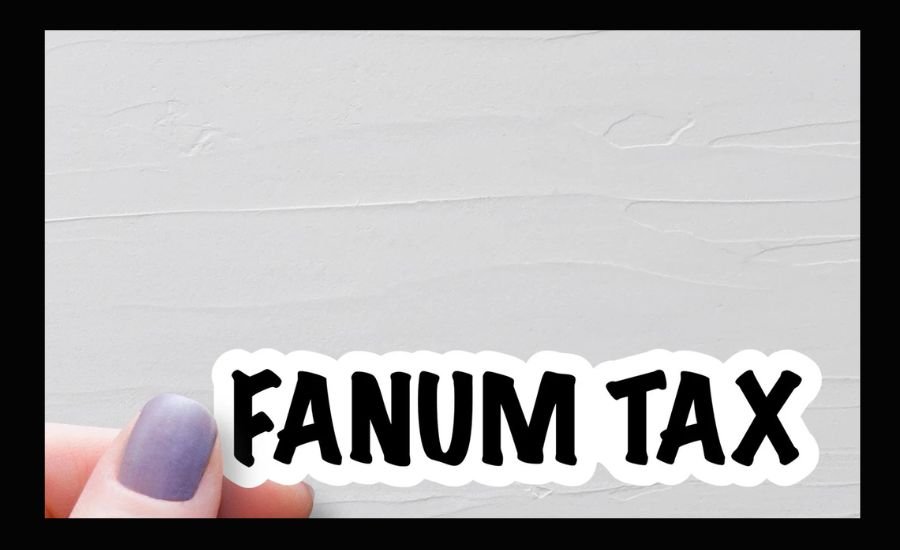In today’s rapidly evolving internet culture, slang terms emerge almost daily, especially among younger generations. One such term that has caught the attention of both teens and confused adults is “Fanum tax.” If you’ve come across this phrase and wondered what it means or where it came from, you’re not alone. This article will explore the Fanum tax meaning, its origins, and how it’s used within Gen Alpha’s social media circles.
The term “Fanum tax” may seem like a random collection of words, but it actually has an interesting and specific origin in the world of online streaming. Fanum, a well known Jerk streamer, coined this term in 2022 as portion of an continuous interior joke among his community and individual streamers. Fanum is part of AMP, a collective of influencers including Kai Cenat, who are known for their hilarious antics and entertaining content. Their influence among teens and young adults on platforms like Twitch, YouTube, and TikTok has made terms like “Fanum tax” spread quickly across the internet.
Fanum started using the phrase in his streams to jokingly “tax” his fellow streamers by taking small portions of their food while they were eating or preparing to eat. This running gag became a way to create a sense of camaraderie and humor, which resonated with fans who appreciated the inside joke. Clips of this exchange quickly went viral, spreading across TikTok and YouTube, where Gen Alpha, the digital-native generation, embraced it as a fun and quirky term to use in their own conversations.
In 2023, the phrase gained even more traction after being referenced in the viral song “Sticking Out Your Gyat for the Rizzler,” which mentions the Fanum tax. This added a musical touch to the term’s popularity, and from that point on, it became a staple of online youth culture.
At its core, the meaning of “Fanum tax” is relatively simple. It alludes to the act of sharing nourishment, particularly when one companion takes a little parcel of another friend’s dinner.The term is often used humorously, and it’s not necessarily about stealing food but about sharing in a lighthearted, friendly way. In fact, the term was directly explained by Fanum in interviews with media outlets like GQ and Wired.
According to Fanum, the “tax” refers to a “need to share” and is not meant to imply any harm or negativity.“The charge is lovely much like: ‘Feed your friends,’” he explained. “Sometimes 5%, sometimes 10%. Just know, bro. That’s the tax.” The idea behind Fanum tax is that friends should share with one another, and the term adds a humorous twist to this concept.
In essence, if you’re hanging out with friends and one person takes a bite from your meal, they are “Fanum taxing” you. It’s a playful way of reminding others that sharing is a part of friendship and a part of the experience of enjoying meals together.
While the origin of Fanum tax is rooted in food-sharing, its use has expanded over time, particularly within the digital spaces inhabited by Gen Alpha. This younger generation, known for their extensive use of platforms like TikTok, has adopted the term as part of their everyday vocabulary.
When Gen Alpha uses the phrase, it often goes beyond simply describing the act of taking food from a friend. For case, expressions like “Hit her with the Fanum tax” or “Fanum burdened my whole pack of chips” are commonly utilized to depict circumstances where one individual takes nourishment from anotherThe phrase adds a sense of fun and mischief to what would otherwise be a normal interaction.
In more uncommon occasions, Gen Alpha moreover employments the term “Fanum tax” as a compliment. This adaptation of the term comes from the thought of alluding to somebody as a “snack” or “treat,” a prevalent state in Gen Z slang. This use of Fanum tax highlights the person’s attractiveness, similar to how someone might be described as “fanum tax” if they’re looking particularly good. For case, a high schooler might say, “Did you see her in that dress? She is so Fanum tax,” indicating that the person looks attractive enough to be considered a treat or snack.
The popularity of Fanum tax among Gen Alpha is largely due to the group’s affinity for internet culture, particularly through social media platforms like TikTok and YouTube. These platforms allow for rapid dissemination of trends, memes, and slang, making it easier for terms like Fanum tax to spread across different groups. As Gen Alpha grows up surrounded by influencers and online personalities, they are highly influenced by the content these creators produce, and as a result, slang terms from these creators—like Fanum—become an fundamentally portion of their language.
Another reason for the term’s popularity is its relatability. Gen Alpha is known for its constant engagement with digital media and its playful, often irreverent nature. Fanum tax fits perfectly into this cultural landscape, as it’s a term that’s easy to use, humorous, and instantly recognizable within the right context.
Moreover, the term Fanum tax is simple to understand and doesn’t require much explanation within the community, which adds to its charm. Unlike more complex slang terms, Fanum tax is something that can be quickly picked up by anyone who follows the right creators or engages in online content. Its ability to create a shared sense of humor and community makes it particularly appealing to Gen Alpha.
If you want to read more informative contents please visit: Influencers-gonewild

While “Fanum tax” is a relatively harmless term, it’s important to consider the cultural context in which it exists. Many of the slang terms used by Gen Alpha, including “rizz” and “gyat,” are derived from African American Vernacular English (AAVE). AAVE, a dialect of English spoken primarily by Black people in the U.S., has influenced much of the language of social media. However, it’s also been appropriated by non-Black people online, leading to concerns about cultural appropriation.
The use of AAVE by non-Black people online is not a new phenomenon, and its widespread adoption has raised issues about respect, recognition, and understanding. While “Fanum tax” itself doesn’t seem to directly fall under cultural appropriation, it’s part of a broader trend where phrases from AAVE are used by internet communities without fully acknowledging their cultural significance.
As with any slang term, it’s important to be mindful of the origins and meanings behind the words we use. While Fanum tax is harmless in its intent, being aware of the broader cultural implications can help foster a more respectful understanding of the language that’s being popularized online.
If you’re trying to incorporate Fanum tax into your conversations and sound in the know, it’s essential to understand the right contexts in which to use the term. The phrase is best suited for informal, lighthearted situations where food is involved, especially if you want to joke around with friends.
For example, if you’re hanging out with friends and someone takes a bite from your plate, you can jokingly say, “Hey, you’re Fanum taxing me!” or “You already took some, no more Fanum tax for you!” This keeps the disposition perky whereas recognizing the act of sharing food.
Alternatively, if you’re using the term as a compliment to someone attractive, you could say, “You look so Fanum tax today,” meaning they’re looking irresistible or “tasty” in a figurative sense.
Q1: Is Fanum tax a form of stealing?
A1: No, Fanum tax is not about stealing. It’s a playful term used to describe the act of taking a small portion of someone else’s food, typically in a lighthearted and friendly context.
Q2: Can I use Fanum tax outside of food-related situations?
A2: Yes, although it originated from food sharing, the term is sometimes used in a more figurative sense, like referring to someone as being “Fanum tax” to compliment their appearance.
Q3: Is Fanum tax only popular among Gen Alpha?
A3: While Gen Alpha has embraced the term most widely, other generations, particularly Gen Z, also use the phrase. It has ended up portion of online youth culture.
Q4: Does Fanum tax have any cultural significance?
A4: The term itself doesn’t have deep cultural significance, but it’s part of a larger trend of slang influenced by African American Vernacular English (AAVE). It’s important to be aware of the origins of such terms.
Q5: Can adults use Fanum tax in conversations?
A5: Adults can use the term if they understand the context and meaning. However, it’s more commonly used by younger people, and using it might feel out of place in formal or professional settings.
In conclusion, Fanum tax is a fun and playful term that has emerged from the world of online streaming and influencer culture. Originally coined by Twitch streamer Fanum, it quickly became popular among Gen Alpha and spread across social media platforms like TikTok and YouTube. The term’s meaning is simple: it refers to the act of taking a small portion of someone else’s food, but it has also expanded to include playful compliments. As slang terms continue to evolve, Fanum tax represents a lighthearted way of expressing the importance of sharing and friendship in today’s digital age.
